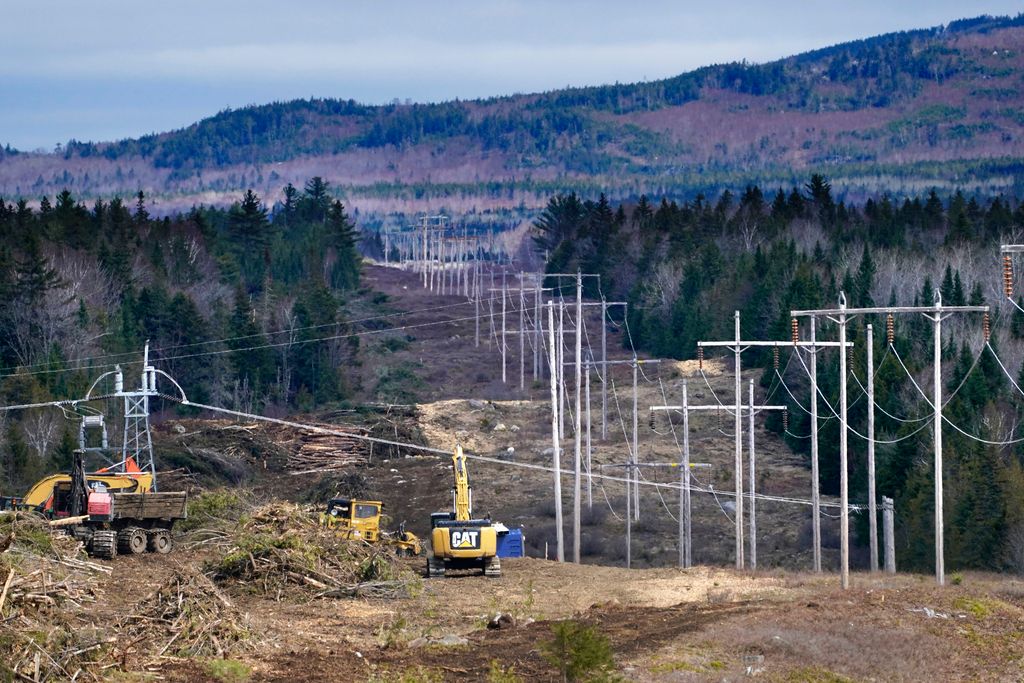An attorney for Central Maine Power’s parent company told the Maine Supreme Judicial Court on Tuesday that the state’s credibility is on the line because of voter-approved changes to rules governing transmission line projects.
“Is Maine a place where a project the state has already declared to be lawful, beneficial and indeed essential economic development to combat the existential threat of climate change, subject to retroactive legislative confiscation,” said John Aromando, an attorney for Avangrid and the New England Clean Energy Connect.
His argument — that the company has constitutionally protected “vested rights” that cannot be taken away by a new state law — was one of several considered Tuesday by the justices. The case was one of two related to the controversial 145-mile transmission line corridor through western Maine and into Massachusetts that came before the court.
Construction on the project has been on hold since November, when Gov. Janet Mills asked the company to stop working on it following the passage of a referendum that would require the company to get legislative approval for its project and re-route it. The ballot measure passed with support of 59% of voters.
On the other side of the case, Maine Assistant Attorney General Jonathan Bolton said the state has a responsibility to represent the public interest.
“You have to look at the other side of the equation, you have to look at the public and governmental interest at stake,” he said.
A decision from the court will be issued in writing “as soon as we can,” said Chief Justice Valerie Stanfill, who said she understands the issue is of great public interest.
“Obviously we are addressing only the legal issues, not the propriety or wisdom of the project in any other matter,” she said.
A second case heard Tuesday involves the decision by the Bureau of Parks and Lands to allow Avangrid to lease a 32-acre parcel of public reserved land for the project. About one mile of the 145-mile corridor will cross the land.
Opponents say the state Legislature should have signed off on the lease, which would have required two-thirds of lawmakers to agree to it.
Lauren Parker, an attorney for the parks and lands bureau, said the state acted within its power to issue the 25-year lease in June 2020. At issue is whether the project constitutes a “substantial alteration” to the land.
“The director did not exceed his authority by executing the lease to CMP,” Parker said.
Nolan Reichl, attorney for the project and CMP, said the lower court erred in not admitting into evidence a memo written by state officials that outlined their reasoning for the decision.
“The Legislature has never required BPL to make a case-by-case assessment about whether a lease is a substantially altered use,” Reichl said.
An attorney for project opponents, James Kilbreth, said the transmission line project does represent a major change in use and that it would interfere with wildlife habitat, timber harvesting and recreation.
Stanfill, the chief justice, said she’s been to the area and that “it’s not a pristine wilderness.”
“It’s a working forest in that area,” she said. “It’s crisscrossed by a host of little twitch trails and roads I think I’ve bird-hunted on. This is not a pristine area.”








